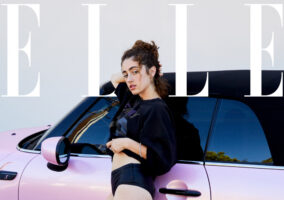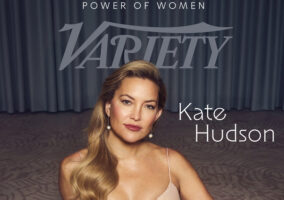Tracee Ellis Ross covers the inaugural ‘The State of Black Beauty‘ issue talking with Kerry Wasington via Zoom (just days before their back-to-back nights hosting the Democratic National Convention), about Black representation, re-framing how Black beauty is perceived, and how they show up for Black women and each other. Her photo shoot —led by an all-Black team and guided by the creative direction and brilliance of the star herself — pays homage to the legacy, resilience, and artistry of Black hair.
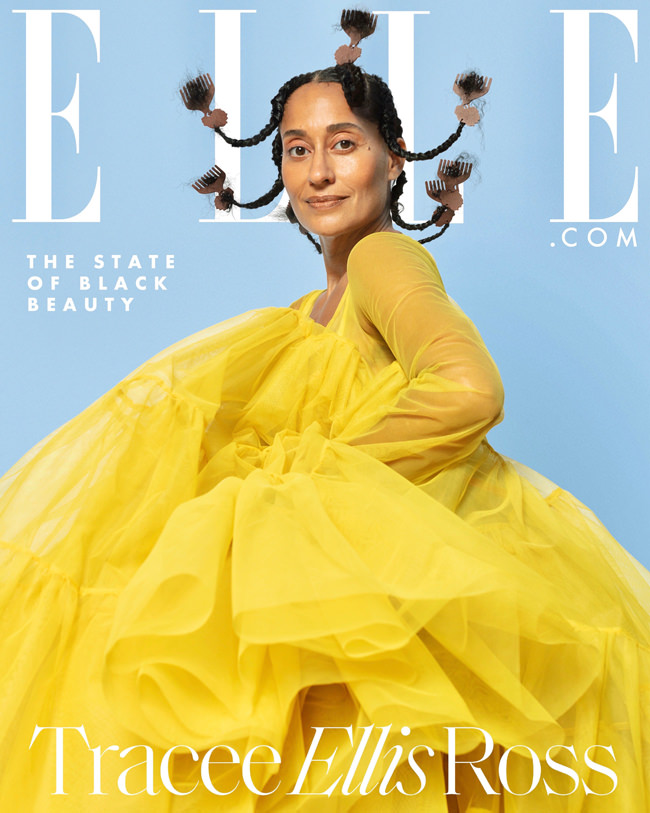
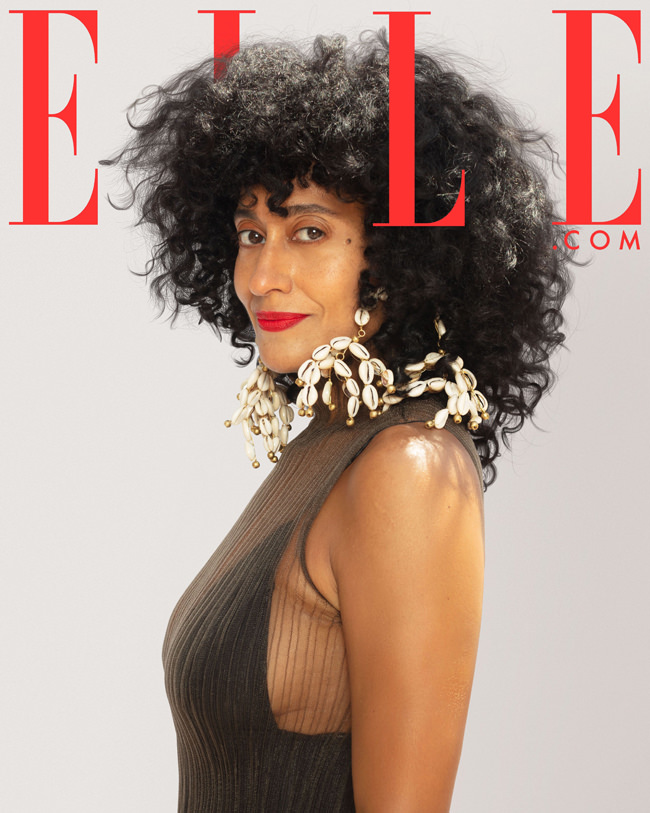
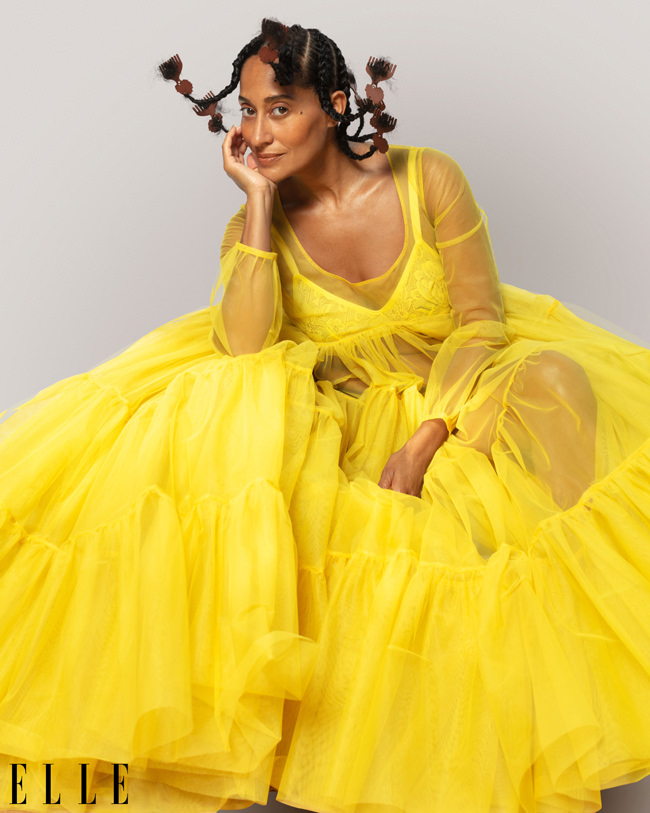
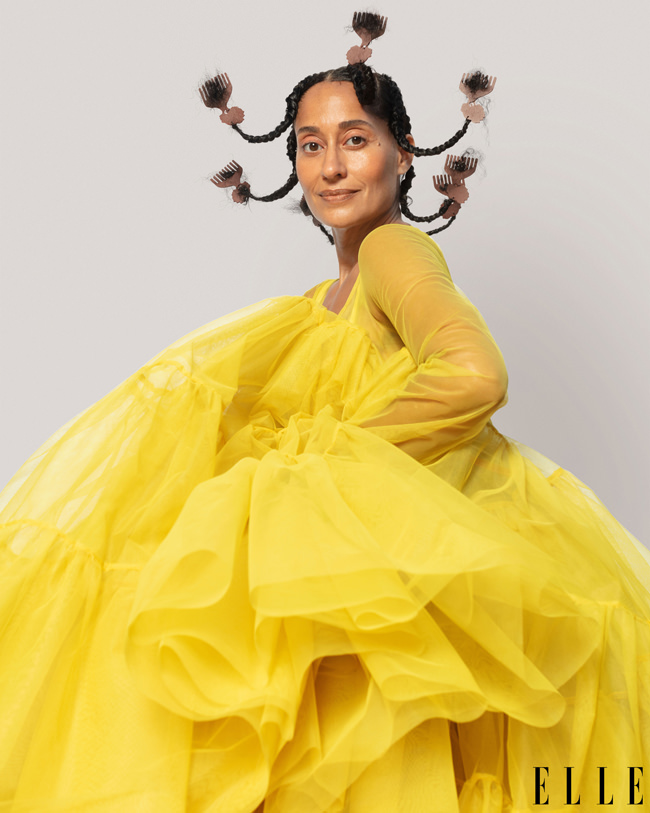
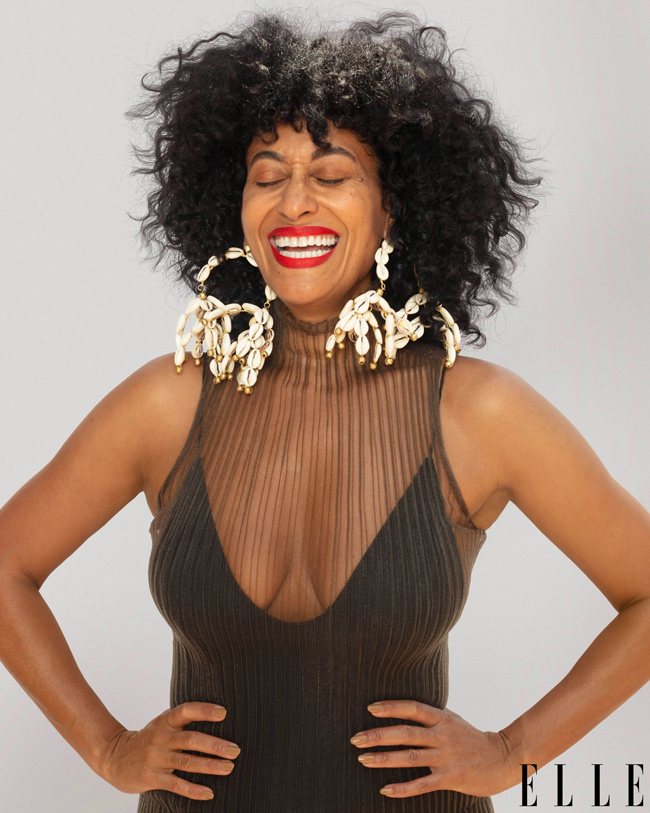

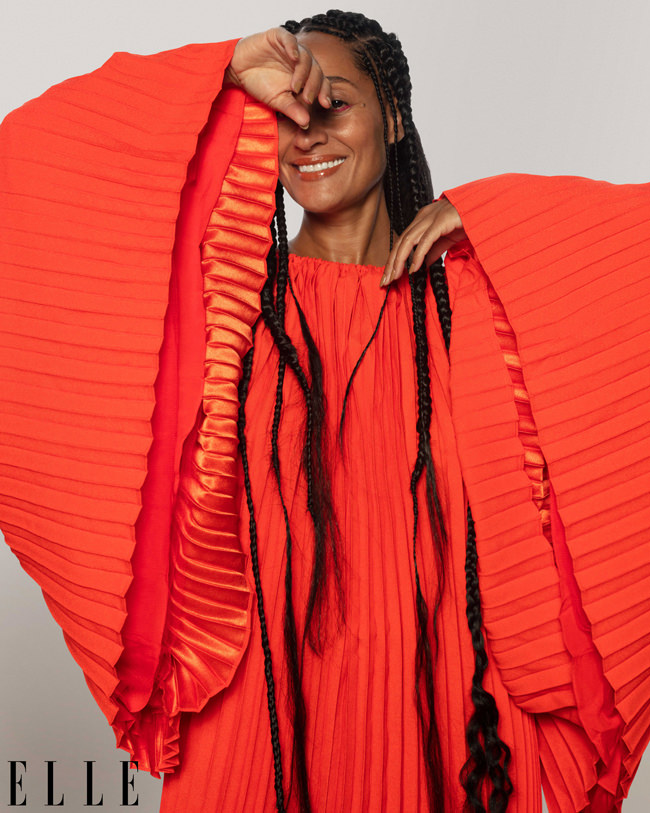
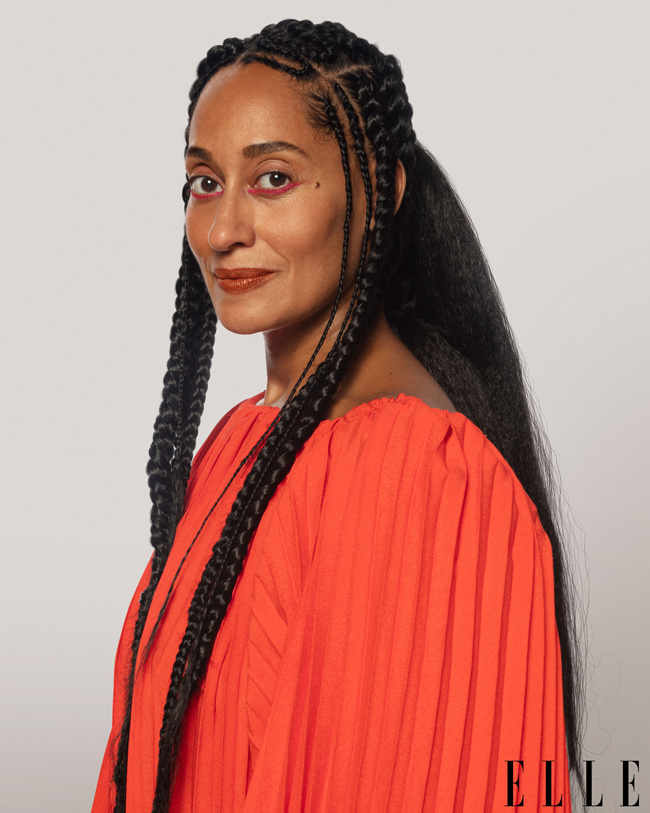

Tracee on creating her hair line, Pattern and why its purpose goes beyond the products they make:
KW: “I want to start talking about you and this incredible journey with your company. It’s born out of your own journey with your hair and you’ve now given so many of us a better toolbox to be able to be on that journey with you. I want to know when the idea to birth Pattern came to be. How did that happen?”
TER: “It started as such a personal relationship with my own hair and feeling like I didn’t have the support to find what I needed. Not just in terms of products, but in terms of how to love myself. I was very supported in my family around my hair. But in terms of seeing all different kinds of versions in the wallpaper of my lives out in the world, I wasn’t seeing it. And I was getting confused. All of the things that I was taught from the media were like, I was supposed to have easy breezy beautiful hair. Bouncin’ and behavin’. My hair didn’t blow in the wind! All of these things didn’t match up. There was a void, in both seeing ourselves in our natural, authentic beauty, and also having products that would work for us to do our hair naturally—to wear it the way it naturally came out of our heads.”
TER: “I used to shop at all the beauty supply shops that were on Wilshire and one of the stylists was like, “You don’t know the amount of people that come in here with a picture of you pulled out of a magazine and they want your hair. If you were to do a line of products, you’d be a millionaire.” I was like, “What? My hair?” And, you know, there was no social media at the time so there was no connection between the community and me. It took about ten years to create Pattern. The mission is two-fold, to create effective products for the curly, coily, and tight textured community. The second part of the mission is to be an active space to celebrate Blackness and the power of Black beauty.”
On why advocating for yourself, especially as a Black woman is a form of resistance and having issues with the word “empower”:
KW: “Sometimes we can feel like speaking up on our own behalf looks like ego. But asking for what we need—whether it’s a friend at an awards show, or speaking up in the hair and makeup trailer, or in our relationships—it is a part of how we express our work, not necessarily our ego. How do you navigate that?”
TER: “With a lot of support. It takes a lot of courage to advocate for yourself. As a woman, and as a Black woman, advocating for yourself is actually a form of resistance. It is how each of us push the world to make sure that the real estate matches the reality of who we are and what we deserve.”
KW: [Snaps fingers] “Preach and poetry! It’s true. To be part of a marginalized population, as women, as people of color, as both, just the act of saying “See me, hear me, don’t push me to the side, just value my presence here in the center of this moment,” is terrifying but necessary.”
TER: “And every courageous act that a marginalized person takes opens up a space for somebody else.”
KW: “It’s for community.”
TER: “It is. I like to use the acronym for ego of Edging God Out. Often, if you look at it from that perspective, then speaking up for yourself is being of service to the god within you. It is you stepping up and saying, “I deserve something better. I have issues sometimes with the word “empower,” like, “We’re going to empower you.” Because often, for so many marginalized people, yes, they don’t have power on the outside, but they do have that power in the inside. The system is mirroring back a powerlessness. That’s not the truth, but we so often believe in the system—because how could you not?—and you think that’s the truth.”
Style Credits:
Styled by Shiona Turini
Hair by Araxi Lindsey
Makeup by Tracee Ellis Ross
Nails by Maho Tanaka
[Photo Credit: Djeneba Aduayom/ELLE Magazine]
Tilda Swinton Working a Balenciaga Gown in the First Clip From Pedro Almodóvar’s “The Human Voice” Is Sheer Perfection Next Post:
Pop Style Opinionfest: Melania and Meghan
Please review our Community Guidelines before posting a comment. Thank you!


